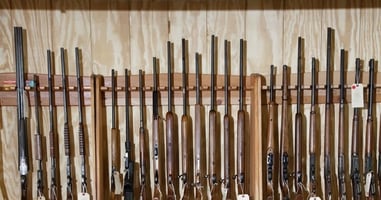Former APA President Steven Sharfstein, M.D., writing in the Baltimore Sun earlier this week,...
Firearm Suicides Decline After Size of Army Reduced
 |
"The army reform wasn't intended to be a suicide prevention measure," said lead researcher Thomas Reisch, M.D., of University Hospital of Psychiatry in Bern, Switzerland, "but suicide by shooting is often done impulsively, and reducing the availability of firearms may have decreased impulsive suicides."
The APA Board of Trustees addressed the link between guns and suicide in passing the following position at its meeting earlier this month: "Although concern is understandably heightened when mass tragedies occur, the daily occurrence of murders and suicides due to the use of guns accounts for a far greater proportion of gun deaths. Although people with mental disorders, when treated, are not at increased risk of committing violence toward others, only a small minority of people with mental disorders, even without treatment are violent."
Read more about the issue of guns, suicide, and violence in Psychiatric News here. Also see Psychiatric Services here.
(image: Oleg Zabielin/Shutterstock.com)





